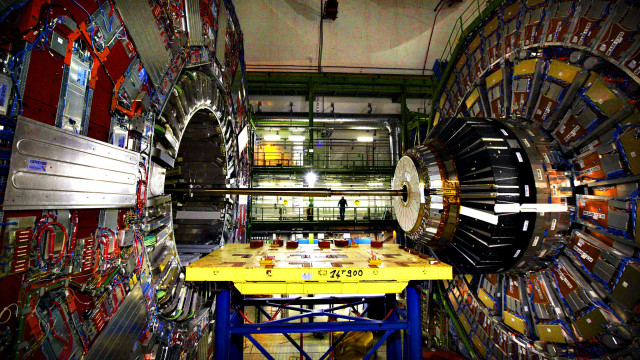Pakistan and CERN
The CERN associate membership may, above all, be an acknowledgement of Pakistan as a legitimate nuclear power

But some of the benefits are mismatched. The ability to win contracts for hi-tech equipment for example, is likely to go unused as Pakistan is currently incapable of making any. Also, CERN and Pakistan have mismatched priorities. The Swiss institute is concerned with clues within the tiniest shards of an atom that might reveal the origins of space and time, “the fundamental structure of the universe,” as their mission statement reads. That aim is fundamentally divergent from Pakistan’s fixations — weapons and energy. (The concerns look mundane in comparison, if not less important.) The institute’s and the state’s purposes, then, are not aligned, and for its own end perhaps what Pakistan can learn — or wants to learn — would be limited at best.
The biggest benefit, however, has less to do with the direct, tangible value that comes from the associate membership. Since the beginning, Pakistan has been isolated and shunned for its nuclear ambitions. Whether this isolation was in the form of American sanctions put in place in the ’90s, or the tedious, alarmist use of ‘nuclear-armed’ as an adjective to describe Pakistan in foreign publications, the stigma has persisted. (Pakistan’s refusal to sign the Nuclear Non-Proliferation Treaty has not helped.) The associate membership may, above all, be an acknowledgement of Pakistan as a legitimate nuclear power that may have a positive role to play in atomic research. That helps mitigate the stigma to no end.
Published in The Express Tribune, September 25th, 2014.
Like Opinion & Editorial on Facebook, follow @ETOpEd on Twitter to receive all updates on all our daily pieces.















COMMENTS
Comments are moderated and generally will be posted if they are on-topic and not abusive.
For more information, please see our Comments FAQ